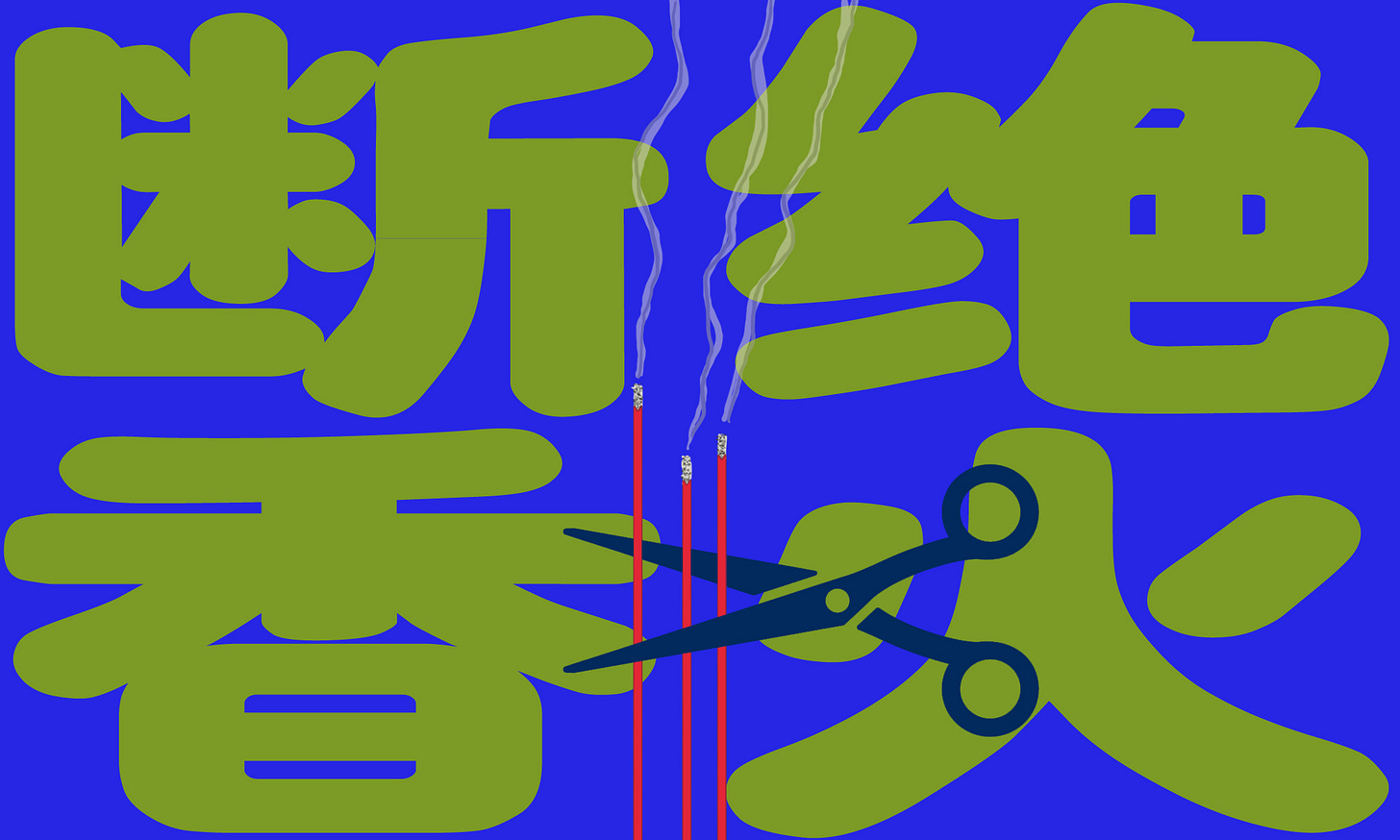Welcome to RealTime Mandarin—a multimedia resource to immerse you in the latest Chinese language trends, inspire you to practice and improve your Mandarin every week, and empower you to communicate with confidence.
Subscribe now to get the next issue straight to your inbox!
China's population fell by 2.75 million, or 0.2%, in 2023, according to data released by the National Bureau of Statistics earlier this year. This decline exceeded the 850,000 drop recorded in 2022, which marked the first contraction in China’s population since the reform era began.
This is despite policies introduced as early as 2016 to encourage families to have more children. These include the relaxation of the one-child policy, replaced by the two-child and three-child policies, and active incentives to encourage more couples of have children such as subsidies and tax reduction programs.
But many remain hesitant, citing challenges such as the high cost of living, delayed marriage due to the high cost of getting married, high unemployment among graduates, limited social mobility, and a highly competitive and expensive education system.
However, some experts had predicted a possible rebound in birth rates in 2024. Notably, economist Liang Jianzhang (梁建章) forecasted earlier this year:
"2024 will see a slight rebound in the birth rate, with the number of births potentially exceeding 10 million."
2024年将迎来人口出生率的小幅反弹,而且反弹的数量甚至会超过1000万。
He explained that this rebound could be attributed to cultural preferences for having "Dragon Year babies" (龙宝宝), a rise in marriages in 2023 (up by 850,000 year-on-year), and the lifting of COVID-19 restrictions.
In line with these factors, the China Statistical Yearbook 2024, compiled and published by the National Bureau of Statistics in October this year, released data on birth rates, death rates, and natural population growth rates across 31 provinces for the previous year.
A review of the data in November by Yicai (第一财经), a financial media outlet, highlighted that in 2023, the birth rate exceeded 8‰ (8 births per 1,000 people) in eight provinces, with 15 provinces reporting birth rates higher than the national average of 6.39‰.
One front runner is Guangdong province, with a birth rate of 8.12‰, a 1.4‰ year-on-year increase in the first half of the year. This is contrary to the usual trend in population growth—as one of China’s wealthiest provinces, birth rates would tend to decline as a society modernises; but this is very much in line with the cultural norm in that region of China in "carrying on the family line" (传宗接代).
Another southern province, Hainan, saw its birth rate reach 9.28‰, and another three provinces and autonomous regions in much less developed parts of China exceeded 10‰.
On the surface, this data does suggest that expert predictions of an increase in the birth rate and a reversal of population decline this year could be correct. However, a closer look reveals a much more complicated picture, and, more broadly, a continued reluctance among young couples to have children.
In the first half of 2024, 4.33 million births were recorded nationwide. If this trend continues, the total number of births for this year is likely to be around 8 million—lower than the 9.02 million births in 2023, and far below the expert projections of over 10 million. UN data supports this forecast, predicting that China’s newborn population in 2024 will be 8.82 million.
So despite some of the data suggesting otherwise, many young people in China remain unwilling to have kids. Comments on the Yicai article reveal the cynicism of many through a play on words of a slang phrase which has become popular this year:
The fact that the workhorse-editor is still replying to the comments (late at night) makes it clear why the birth rate is so low.
Everyone is just trying to survive, with only a rare few striving to live their life.You and I are both born workhorses, endlessly toiling in hardship, without a moment of rest." [1]
看到牛马小编还在码字选精品回复,就知道出生率为什么那么低了,都在求活,只有极少数人在求生。你我皆牛马,生在人世间,终日奔波苦,一刻不得闲。[1]
The "workhorse" metaphor, which is a language trend we have followed closely this year, is developed creatively by another commenter:
On stormy days, as torrential rain pours down, cows will retreat to their shelters to sleep, and horses will stay in the stable eating grass.
But the [human] workhorses will find every possible way to go to the office. Cows moo, horses neigh, while workhorses reply, "Received with thanks!" [1]
暴雨天,大雨倾盆,牛会躲进窝里睡觉,马会在马棚吃草,而牛马会想尽办法出门干活,牛会哞,马会叫,牛马天天喊收到。
In a blog article from this week, which discusses the recently published birth rate data, an interview with a young couple reveals the feelings of many:
"Nowadays, it’s becoming increasingly difficult to raise children, considering education, healthcare, housing, and work pressure...
I feel that these pressures are even more unbearable than having a child itself." [2]
现在孩子越来越难养,教育、医疗、房子、工作压力……我觉得这些压力比养个孩子本身更让人无法承受。”
In the same article, the writer also interviews an older resident in Guizhou province, one of the poorer regions in China, with one of the highest birth rates.
He says something quite different:
"How would young people today know what 'family lineage' is?
Only when they have children do they realise true happiness. Look, my children are very caring. They come back to see me every year and send me money.
My children take care of me when I'm old. That makes me feel at ease." [2]
“现在的年轻人哪懂得什么是‘香火’,有了孩子才知道幸福。你看,我的孩子都很孝顺,每年都回来看看我,送点钱,年纪大了能有人照顾,心里才踏实。” [2]
His words reflect the traditional Chinese view of having children, through the metaphor of “continuing the incense” (延续香火)—a cultural reference to the age-old tradition of ancestor worship in China.
However, for many young people in China’s cities, living up to these traditional values is a long way from their reality. For them, having one more child means being able to afford a larger apartment which would cost them an extra several hundred thousand yuan (or tens of thousands of dollars).
Even if they can afford to buy a larger home to accommodate one more child, young couples have many more long-term costs to consider, driven by some of the pressures we have discussed in previous newsletters, as one young parent shares:
At three years old, you must "win at the starting line."
In elementary school, you have to attend out-of-school classes.
In middle school, you need to join tutoring programs;
In high school, you have to cram relentlessly for Gaokao.
Graduating from a good university only means you become unemployed.
You face fierce competition during the job hunt, you need the support from your family to pay the down payment, and then you’re burdened with a 30-year mortgage.
三岁要"赢在起跑线",小学要上补习班,中学要上培训班,高考要拼命刷题,考上好大学,毕业即失业,找工作要内卷,买房要全家帮忙,还要背30年房贷。[4]
Grim.
So that’s what we’re exploring this week!
🎧 Podcast preview: In today’s Member Podcast we explore the word “负担” (fùdān), which functions as both a noun and a verb. As a noun, it refers to a "burden" or "load," often related to financial, emotional, health, or social pressures—such as "the burdens of life" (生活负担). As a verb, it means "to shoulder" or "to bear," frequently appearing in phrases like "cannot afford" (负担不起). We also dive into the meaning of “DINK family” (丁克家庭), a term borrowed from English that's now commonly used in Chinese. Tune in at 9 minutes to discover how these expressions come to life in daily conversations!
Favourite Five
1. 摆烂 bǎi làn
let it rot; give up
生育率交给70后、80后们吧!努努力还可以生二胎!拼三胎!90后已经摆烂不结婚了 - Leave the birth rate to the generation born in the 70s and 80s! With some effort, they can still have a second child or even aim for a third. The generation born in the 90s have already given up and are no longer getting married. [1]
2. 牛马 niú mǎ
workhorse, overworked person
周五晚上23点,在单位的牛马看牛马编辑的文章摸会鱼- At 11pm on Friday, I, a workhorse, am slacking off by checking out this article written by an overworked editor, another workhorse. [1]
3. 断绝香火 duàn jué xiāng huǒ
cutting off the family line
随着生育率的下降,社会上关于“断绝香火”的讨论不断升温 - As the fertility rate declines, discussions about "cutting off the family line" are getting louder. [2]
More: Read more about this phrase in tomorrow's Sinica Phrase of the Week.
Related:
香火 xiāng huǒ – family lineage, incense burning
延续香火 yán xù xiāng huǒ – to continue the family line
4. 传宗接代 chuán zōng jiē dài
carrying on the family line
在过去,传宗接代、继承香火是中国社会的基本观念之一 - In the past, carrying on the family line and continuing the lineage was a fundamental concept in Chinese society. [2]
More: an idiom which can be changed into the pun which sounds the same but means something completely different.
Related:
代代相传 dài dài xiāng chuán - passed down from generation to generation
5. 不婚不育 bù hūn bú yù
not marrying or having children
一些老人支持孙辈们不婚不育,真的是负担太重了 - Some elders support their grandchildren who choose not to marry or have children, as the burden is simply too great. [3]
Related:
丁克家庭 dīng kè jiā tíng - DINK family (“dual income, no kids”)
多子多福 duō zǐ duō fú – more children, more blessings (opposite meaning)
Consuming the Conversation
Useful words
6. 嘴替 zuǐ tì
"mouth substitute", someone who articulates exactly what is on your mind
小编……你把那些嘴替全给精选了……领导知道吗 - Dear editor, does your boss know that you've picked out all the comments that speak our mind? [1]
7. 失衡 shī héng
imbalance
很多人担心这一趋势将导致人口结构的严重失衡,甚至直接影响国家的未来 - Many worry that this trend will lead to a severe demographic imbalance, even directly affecting the country's future. [2]
8. 负担 fù dān
burden, load
现代社会的快节奏和高度竞争,使得很多年轻人将生育看作是一种“负担” - The fast pace and intense competition of modern society make many young people view having children as a "burden." [2]
More: we discuss this more in the Member Podcast.
9. 掏空 tāo kōng
to drain, to deplete
这两项加起来,很多家庭掏空家底也负担不起 - Many family can't afford these two, even if they spend every penny they have. [3]
10. 彩礼 cǎi lǐ
bride price, dowry
比如结婚就要面临高彩礼,动辄几十万,直接把年轻人阻拦在了婚姻之外 - For example, getting married often means paying a high dowry of hundreds of thousands yuan, which becomes the most effective deterrence factor for young people. [3]
11. 锐减 ruì jiǎn
sharp decline
整个房地产市场都会因为人口锐减而面临大洗盘 - The entire real estate market is facing a major reshuffle due to the sharp decline in population. [3]
Related:
骤减 zhòu jiǎn - plummet, sudden decrease
断崖式 duàn yá shì - cliff-like, precipitous
Three-character phrases
12. 无子女 wú zǐ nǚ
childless
随着社会的发展,我们或许将面临一个“无子女社会”的新时代 - As society evolves, we may be entering a new era of a "childless society". [2]
13. 光棍男 guāng gùn nán
bachelor, single man















